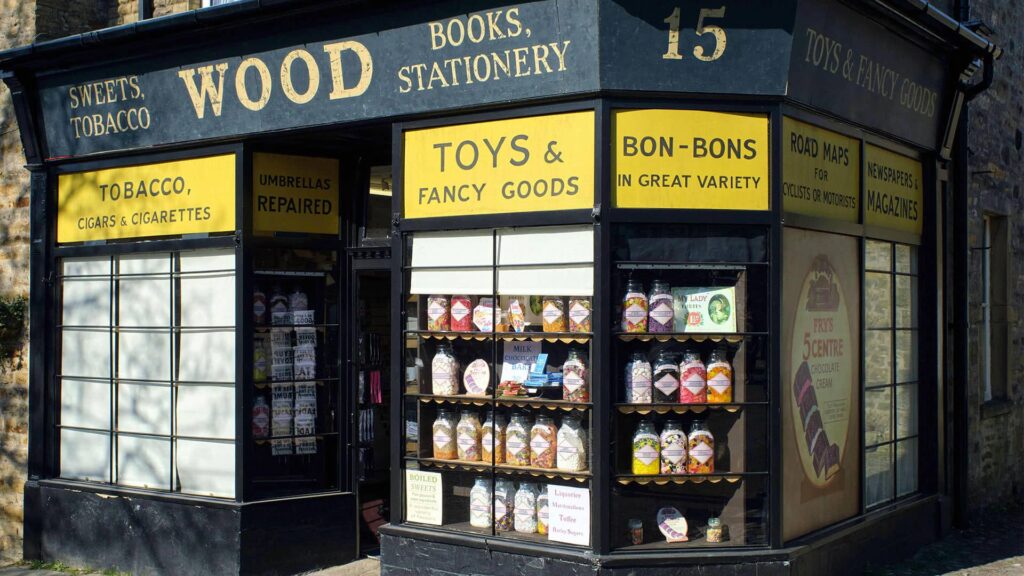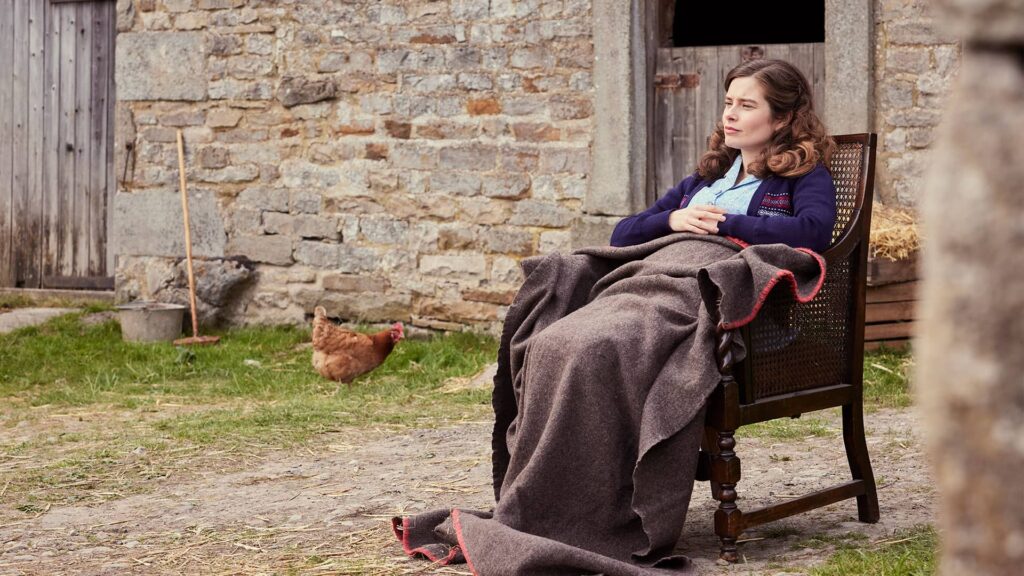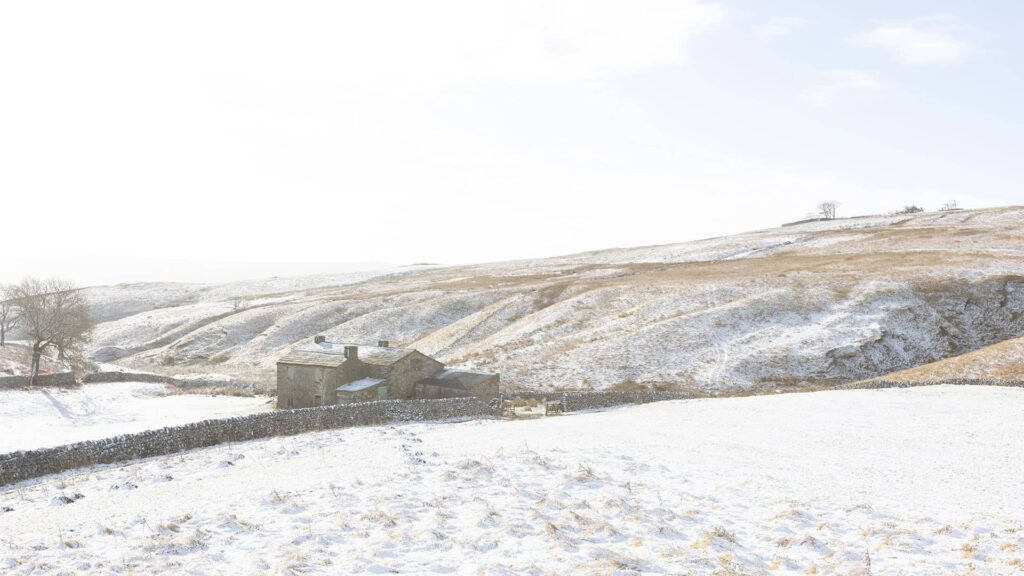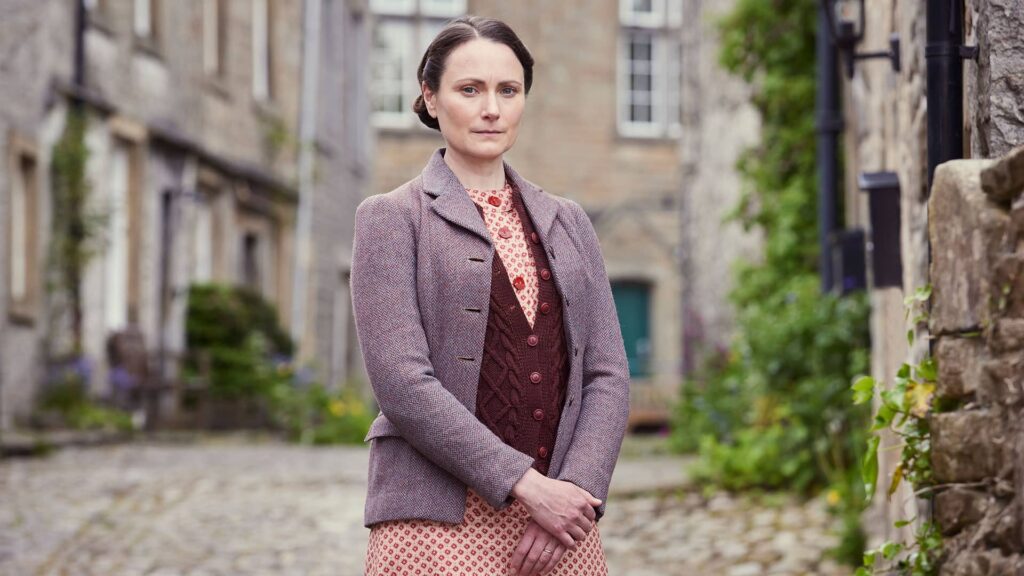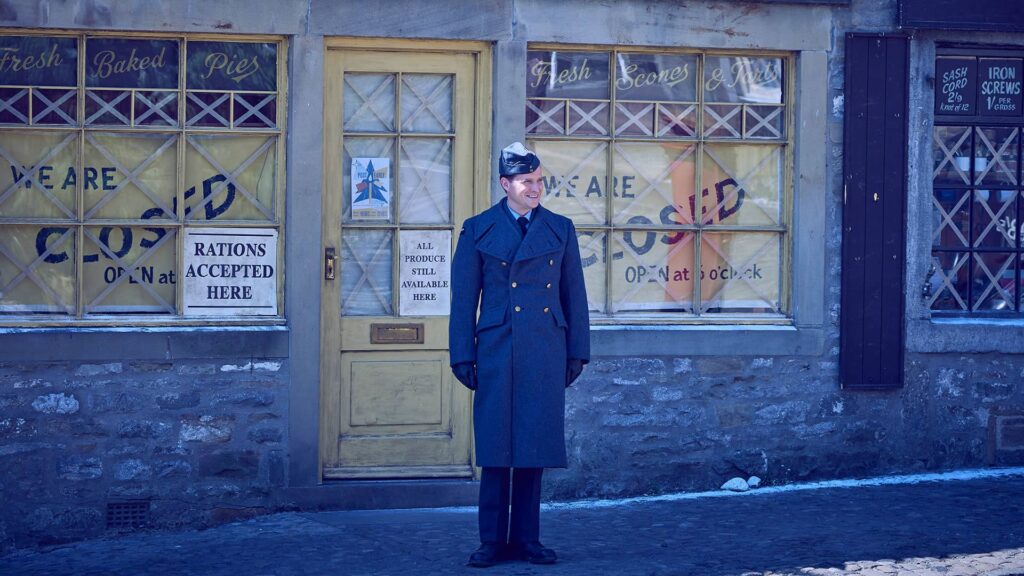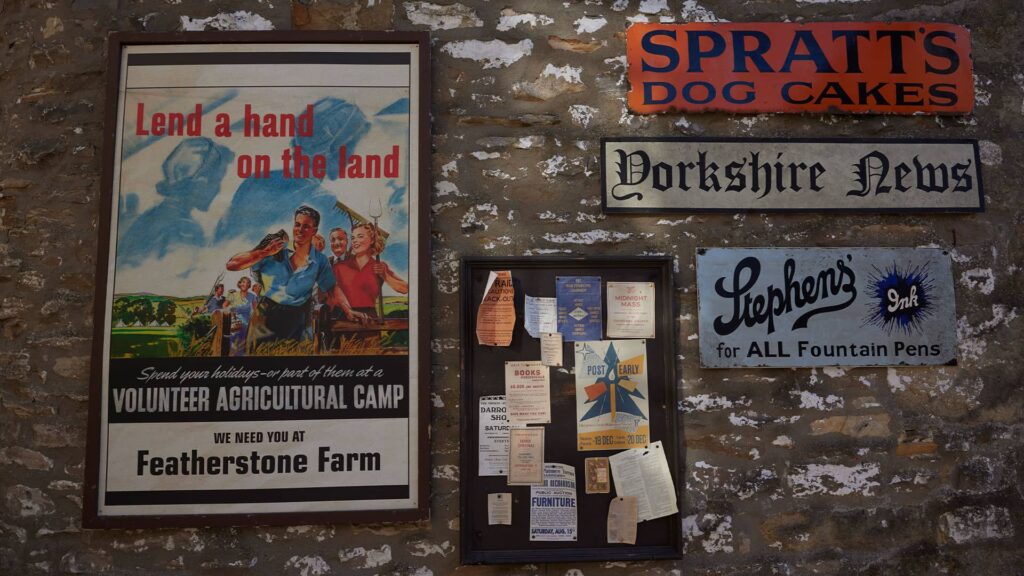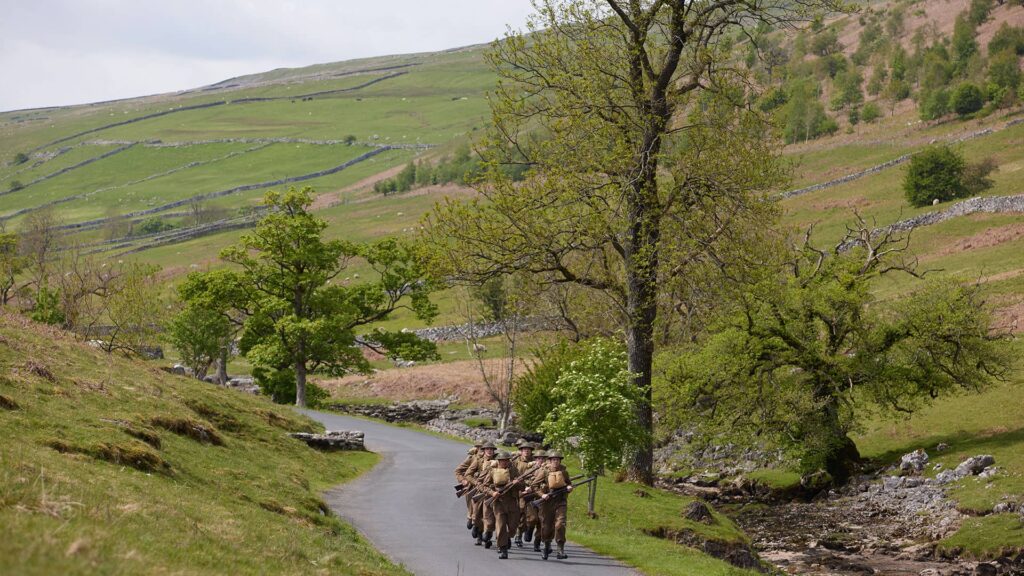The Surprising Real History in Season 4
In Season 4 of All Creatures Great and Small, the year is 1940, the world is at war, Tristan is serving in the Royal Army Veterinary Corps, and James is awaiting his call by the RAF. How does the war affect the daily life at Skeldale House and in the Yorkshire Dales? As it turns out, in all sorts of ways, great and small. From rationing to divorce, pregnancy to weather forecasts, the history in Season 4 is full of surprises, and in a conversation with MASTERPIECE, the production’s historical advisor (and Grassington native) Dr. Mark Roodhouse of the History Department at the University of York, took us behind the scenes to shed light on the rich history that shaped our beloved characters’ Season 4 experiences.
Contains significant Episode 7 spoilers
- 1.
The Realities of Rationing

Historian Mark Roodhouse wanted to show how World War II’s gradual run-up from peace to war played out in the Yorkshire Dales, and one such way that might surprise All Creatures Great and Small viewers was that life in rural England was comparatively quite better than life in the cities, especially in the areas of food rationing…at least for a time. “Food rationing,” explained Roodhouse, “Yes, it’s a pain, but you have a big garden, so you can supplement your rations, and swap and barter with your neighbors who are doing the same thing. Farmers [could] keep a bit of extra milk if they wish, and they’re making cheese or butter, and they don’t have to sell their eggs. So there’s a sense in which, on the basic level of foods, the countryside is a good place to be.”
As time went on, however, scarcity of branded goods became a real challenge. In the period of Season 4, Roodhouse explained, people still had larders stocked with goods from 1939, and “it’s still possible to pull out a bottle of whiskey or get ahold of gin to celebrate Christmas, or go to the pub and drown your sorrows. But over time, those everyday luxuries—the little treats for yourself—become harder to get hold of.” As they moved through 1940, the private stores started to empty, and it hit people in sometimes unexpected ways. “Take Christmas, for example—getting hold of kids’ toys was really difficult, and people had to start making their own. Or getting herbs and spices to make your food interesting—that was really difficult. So in the show, Mrs. Hall is a fantastic housekeeper, and she must have been completely frazzled and exhausted by it, juggling the bureaucracy of the coupons and the ration books.”
And the increase in scarcity wasn’t just confined to food. There were short supplies of clothes and shoes, so much so, Roodhouse said, “that by 1941, clothes rationing is brought in and you can only get, essentially, one complete outfit a year, including socks, underwear, and a bra, if you need it.”
- 2.
A Dip in the Birth Rate

Just as James and Helen’s first baby was born during the war, so too was the real Alf and Joan Wight’s. And that, said Roodhouse, was unusual in the bigger historical picture, as there was actually a big dip in the birth rate in 1940. He explained, “There are perhaps many different reasons for the dip. People were under lots of stress, people were delaying marriage, and often children would follow marriage rather than proceed it. You also have the fact that couples might be separated by military service, which sometimes speeds up marriage, but necessarily might make it harder to have kids if you’re not sleeping together or seeing each other very regularly.”
Roodhouse also pointed out that medical services were disrupted in 1940, and small country hospitals were being reorganized to potentially care for the wounded from air raids. “So things are slightly coming apart. They come back together again in 1941, but in 1940, things are just not quite meshing, and that impacts in these little ways that you see in the show.”
- 3.
A Surprising State Secret

In All Creatures Great and Small‘s Season 4 finale, Helen’s midwife is stuck up in the Dales due to snow. And plot points like snow create interesting challenges for Roodhouse, whose job it is to ensure accurate historical plausibility and possibilities even down to the weather—a challenge because weather forecasts were actually a state secret in World War II! He explained, “You didn’t want to publicize too much about the weather because the German bombers would then know, ‘Oh, it’s going to be a good bombing night.’ So the newspapers were a little bit more circumspect than they were at other times, and I had to do a little bit of strange diving and trying to work out, well, what was the weather like in spring of 1940? And confirm that actually, yes there was quite significant snow in the Dales, and those roads were cut off.”
- 4.
Divorce During Wartime

Viewers of All Creatures Great and Small Season 4 saw Mrs. Hall seeking a divorce, with the burdens of bureaucratic red tape compounding her emotional stress. In fact, said Roodhouse, “The divorce process for Mrs. Hall was complicated, but it was more complicated than it needed to be because of the war. And it surprised me how much work it took in trying to understand the process for divorce in 1940.” Divorce, he explained, was generally rare because it was difficult to obtain. “But the law was gradually changing over the 1930s, and so it became about trying to pin down what the process is at a particular moment and how the war impacted it. Because the courts were all disrupted, some people are called up, others are unable to get to court on time—how does that impact a legal process? Understanding all that. You actually see, initially, a fall in divorce numbers, because it’s quite difficult to organize it. And then it picks up again, the same kind of things as with pregnancy. It’s thinking through all that really quite practical stuff, and actually none of it is recorded in an easy to find place. You have to go back to government reports, debates in parliament, newspaper reports… You have to get it right.”
- 5.
James Herriot and the RAF

Nicholas Ralph as James Herriot in Season 4 of All Creatures Great and Small One of Roodhouse’s jobs is to help the show with its timeline, ensuring that the timeline of the story matches what’s happening elsewhere, with individual aspects as well. He explained, “So with James, it’s: How long would it have taken him to train as a pilot? Where would he have been in the country at this particular point? Would there be a moment when he was being transferred from one base to another base? How can we set things up so that we have a “planes, trains and automobiles” storyline that gets him home to Darrowby for Christmas—one that’s completely nuts, but actually works with RAF training, and that we could put it in?” That sort of thinking and following of characters’ timelines, Roodhouse said, is crucial for the writers as they understand possibilities for episodes, from the incidentals to the bigger narrative.
- 6.
Agricultural Changes in the Yorkshire Dales

All Creatures Great and Small viewers may be surprised to learn about some of the ways that World War II changed the Dales. Just as the run up to the war was gradual, from the period of the phony war to the active phase in the summer of 1940, when there was mobilization and a real fear of German invasion, so too did the British economy gradually change and gear up. And, said Roodhouse, “You see that in agriculture. People often forget that the agricultural year is the agricultural year—what you are harvesting in September 1939 is what you sowed earlier in 1939—so you begin to see the changes in the countryside, literally year-on-year. And there began to be ‘plowing-up’ campaigns in the Dales, with areas that had not been plowed since the medieval period being plowed for fodder crops to feed the livestock, because they’re not importing fodder anymore, or for fertilizer, in some cases, as well, because they need more of fertilizer, too.”
- 7.
Cultural Changes in the Yorkshire Dales

Changes in the Dales weren’t confined to agriculture, either. Roodhouse said, “Another thing that I think surprises many people, and one of the things I was keen to help the writers recognize, is how busy the Dales were, and how mobile Britain had suddenly become. During the war, you start to see a lot of mixing taking place. We’ve had evacuees, people from urban areas coming to the rural areas, on the show. You see the army arriving in Darrowby and training in that area. And of course the army, the big green machine, is pulling people out of all parts of the UK and then dropping them into this quite tight-knit community.”
How that tight-knit community suddenly finds itself opening up to the world, and the world also coming to it, was meaningful to Roodhouse. “You’ve got Tristan off in [the war], James haring [rushing] around the UK, and people from all over the UK who would never have visited the Dales, coming to it. I think we might also start seeing people from around the world coming in to the UK. And that opening up, that sense of rural community and people knowing one another, but also being quite open, and also not hiding away from the tensions and some of the social problems of small communities, as well, strikes a chord.”










